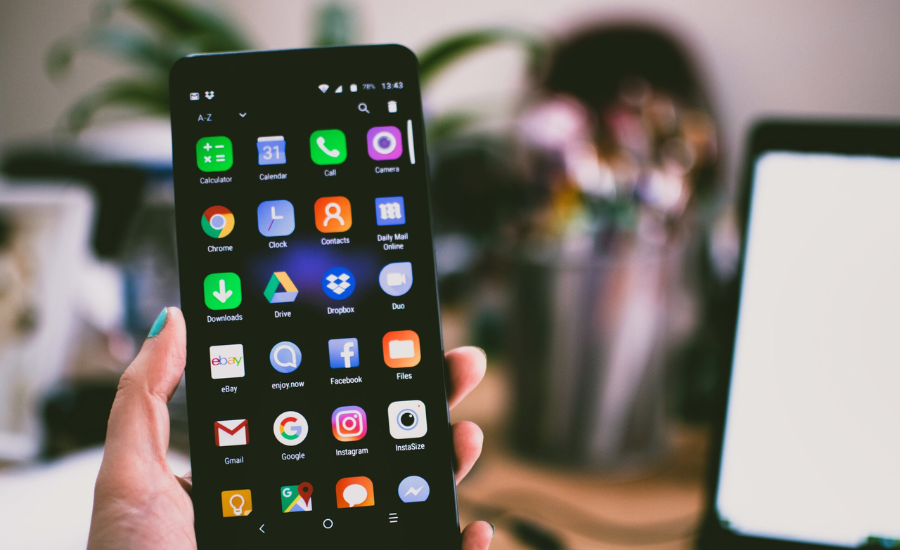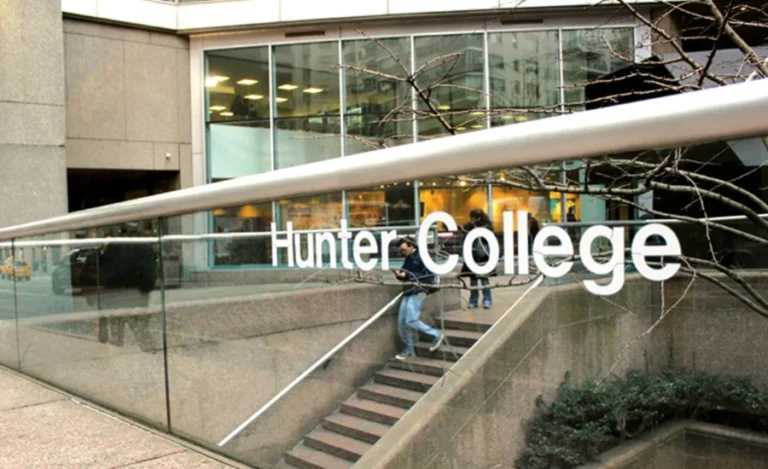How to Handle Robocalls 602-671-3998 : Identifying, Managing, And Protecting Yourself From Unwanted Calls
In today’s digital era, receiving phone calls from unfamiliar numbers has become a common occurrence, often leaving individuals perplexed or anxious. One such number that has recently piqued curiosity is 602-671-3998. This article delves into the origins, purpose, and nature of this phone number. By exploring the details, we aim to provide valuable insights that can help readers determine whether the call is part of a possible scam, a legitimate business outreach, or simply a case of misdialing. Read on to learn more about 602-671-3998 and the importance of staying informed in the digital age.
Unveiling The Mystery: What You Need to Know About 602-671-3998
Phone calls from unfamiliar numbers can be unsettling, especially in a world where scams and spam calls are rampant. One such number that has sparked concern is 602-671-3998. Many people have reported receiving calls from this number and have raised questions about its legitimacy and intent. Understanding the basics of where this number originates, specifically from area code 602, can offer initial clues about its purpose and whether it is something to be wary of. In this article, we’ll break down everything you need to know about 602-671-3998 and guide you on how to approach such calls safely and effectively.
Area Code 602: What Does It Tell Us?

The phone number 602-671-3998 falls under area code 602, which is predominantly associated with Phoenix, Arizona, one of the largest cities in the state. Established in 1947, area code 602 is among the original area codes in North America and covers a significant portion of Phoenix, a bustling metropolitan area with a diverse population and a range of businesses. This geographical context is important because it means that calls from area code 602 could potentially be from anyone—residents, local businesses, telemarketers, or even scammers. Due to the high density and diverse economic activity within Phoenix, calls from this area code could range from legitimate business inquiries and customer service follow-ups to unwanted marketing and fraudulent schemes.
Analyzing User Reports: Is 602-671-3998 a Potential Scam?
One of the primary concerns with receiving a call from an unknown number, like 602-671-3998, is the risk of it being a scam. There have been numerous user reports online describing experiences with this number that suggest dubious intentions. Some of the common complaints involve unsolicited sales pitches, aggressive telemarketing tactics, attempts to gather personal information under false pretenses, or even automated robocalls. These types of calls often aim to create a sense of urgency or fear, compelling the recipient to respond without much thought. This behavior aligns with common scamming techniques, where the caller tries to extract sensitive information or financial details from unsuspecting individuals.
Recognizing The Warning Signs: Patterns to Watch For
While not every call from 602-671-3998 may be fraudulent, there are recurring patterns that raise red flags. Awareness of these signs can help you avoid potential scams and protect your personal information. Some common patterns reported by users include:
- Automated or Robocalls: Many recipients describe receiving calls that start with a recorded message claiming to represent a well-known company or even a government agency. These robocalls are often used to create a sense of urgency or alarm.
- Requests for Personal Information: Another red flag is when the caller asks for sensitive information, such as Social Security numbers, bank details, or passwords, under the guise of verification or a security check. Legitimate companies typically do not request such information over unsolicited phone calls.
- Repeated Calls at Odd Hours: Receiving multiple calls from the same number, especially during unusual hours, can indicate a scam. Legitimate businesses usually adhere to standard working hours and have clear protocols for contacting clients or customers.
- High-Pressure Tactics: If the caller employs high-pressure tactics to make you take immediate action, such as providing personal information or making a payment, this is a significant warning sign of a scam.
Staying Safe: How to Handle Calls from 602-671-3998
Despite the negative reports and potential red flags associated with 602-671-3998, it is essential to approach such calls with caution rather than panic. Here are some steps to consider:
- Do Not Answer Immediately: If you do not recognize the number, let it go to voicemail. Most legitimate callers will leave a message if the matter is important.
- Verify the Caller: If a message is left or the caller claims to be from a known organization, take the time to verify by calling the organization directly using a number from their official website.
- Use Call-Blocking Features: Utilize call-blocking features on your phone or third-party apps to prevent repeated calls from suspected spam numbers.
- Report Suspicious Numbers: If you suspect that 602-671-3998 is a scam, report the number to the Federal Trade Commission (FTC) or your local consumer protection agency to help protect others.
The Surge In Robocalls: A Growing Challenge For Consumers

In recent years, robocalls have become a significant issue for consumers across the United States. According to the Federal Communications Commission (FCC), complaints about robocalls have surged, making them one of the most common grievances reported by the public. The sheer volume of these unwanted calls has created frustration and concern, particularly because many of these robocalls are linked to scams or deceptive practices. Understanding the reasons behind the rise in robocalls and how they operate can help consumers stay vigilant and protect their personal information.
Factors Driving The Increase In Robocalls
Several key factors have contributed to the dramatic rise in robocalls:
- Technological Advancements and Cost Reduction: The introduction of Voice over Internet Protocol (VoIP) technology has revolutionized the telecommunications landscape, making it significantly cheaper and easier for robocallers to make thousands of calls in a short period. VoIP allows calls to be made over the internet instead of traditional phone lines, lowering the costs for scammers and telemarketers. With this technology, robocallers can automate mass calling processes, targeting a wide audience with minimal effort.
- Spoofed Caller IDs: One of the most troubling aspects of robocalls is the use of “spoofing” technology. Spoofing allows robocallers to disguise their actual phone number and make it appear as if the call is coming from a legitimate source, such as a local business, government agency, or a familiar number. This deceptive practice increases the likelihood that a recipient will answer the call, thinking it is trustworthy. Spoofed numbers can also mimic the first six digits of your own number, making them seem more local and familiar, which is often referred to as “neighbor spoofing.”
- Insufficient Regulatory Enforcement: While there are laws designed to protect consumers from unsolicited robocalls, enforcement remains a challenge. Regulatory agencies like the FCC and the Federal Trade Commission (FTC) have established rules, such as requiring telemarketers to gain prior consent before calling, but robocallers frequently bypass these regulations. Many of these operations are based overseas, which makes it difficult for U.S. authorities to take effective action against them. The global nature of the internet further complicates the enforcement of anti-robocall laws, creating a loophole that many fraudulent entities exploit.
The Specific Case of 602-671-3998: A Number Raising Eyebrows
Among the many numbers reported for robocalls, one that has drawn particular attention recently is 602-671-3998. Consumers across various online platforms and community forums have flagged this number as a possible source of suspicious robocalls. Those who have received calls from 602-671-3998 often report messages that are either vague, misleading, or create a sense of urgency. These calls typically push the recipient to act immediately, which is a common tactic used by scammers to exploit unsuspecting individuals.
What Are the Red Flags Associated with 602-671-3998?
Several common themes and patterns have emerged from reports by individuals who have received calls from this number. These calls tend to focus on schemes that attempt to extract personal information or manipulate recipients into making financial commitments. Some of the most frequently reported types of robocall scams associated with 602-671-3998 include:
- Debt Relief Scams: Many recipients have reported receiving calls from this number offering debt relief services. The callers often promise to reduce or eliminate debts in exchange for sensitive personal information or upfront fees. These scams prey on vulnerable individuals who may be struggling financially, offering false hope of financial relief while potentially leading to identity theft or loss of money.
- Fake Prize Announcements: Another common tactic associated with 602-671-3998 involves fraudulent prize notifications. Callers claim that the recipient has won a prize, such as a gift card, vacation, or cash reward. However, to claim the prize, recipients are usually asked to provide personal or financial details or pay a “processing fee.” These scams are designed to gather information that can be used for fraudulent purposes or to steal money directly from the victim.
- Phishing Attempts for Personal Information: Phishing scams are a significant concern with robocalls from this number. In these scenarios, the caller might pose as a representative from a bank, credit card company, or government agency, requesting that the recipient “verify” their personal information, such as Social Security numbers, bank account details, or credit card information. These scams exploit fear and urgency, convincing victims to provide sensitive data that can lead to financial fraud or identity theft.
Staying Safe: How To Handle Suspicious Robocalls

As robocalls continue to rise, it is crucial to adopt best practices to protect yourself from potential scams. Here are some tips to consider:
- Don’t Answer Unknown Numbers: If you receive a call from an unknown or suspicious number like 602-671-3998, it is best not to answer. Let the call go to voicemail; legitimate callers will usually leave a message.
- Use Call-Blocking and Anti-Scam Apps: Many smartphones have built-in features that allow users to block unwanted calls. Additionally, several apps are designed to identify and block robocalls and known scam numbers.
- Be Skeptical of Unsolicited Offers: If you receive a call claiming you’ve won a prize or offering services, approach it with caution. Never provide personal or financial information over the phone unless you can verify the caller’s authenticity.
- Report Suspicious Numbers: If you receive a suspicious call, report it to the FTC or your local consumer protection agency. Your report can help authorities track these scams and potentially reduce the number of robocalls.
- Educate Yourself and Others: Staying informed about the latest robocall scams and tactics can help you recognize potential threats. Share this information with family and friends to ensure they are also aware of how to handle such situations.
What Actions Can You Take if You Receive a Robocall?

Receiving a robocall, whether from 602-671-3998 or any other suspicious number, can be unsettling. To protect yourself from potential scams and minimize unwanted disruptions, it’s essential to follow a few key steps. Here’s a comprehensive guide on how to handle such calls effectively:
1. Avoid Interaction
When you receive a robocall, the most prudent response is often to simply hang up. Engaging with the caller, even to express disinterest or frustration, can sometimes backfire. By interacting with the automated system, you may inadvertently confirm that your phone number is active, which can lead to an increase in the number of calls you receive. Scammers and robocallers often use this tactic to build lists of active numbers for future targeting.
2. Utilize Caller ID Features
Modern smartphones come equipped with caller ID functionalities that can help you identify the source of incoming calls. When you receive a call from an unfamiliar number, such as 602-671-3998, consider letting it go to voicemail. If the caller is legitimate, they will usually leave a message explaining the purpose of their call. Relying on caller ID can help you filter out potential spam and avoid unnecessary interactions.
3. Report Suspicious Calls
Reporting suspicious robocalls is an important step in combating these unwanted intrusions. You can report robocalls to several authorities who work to track and take action against these practices. The Federal Trade Commission (FTC) allows you to report unwanted calls through their National Do Not Call Registry. Additionally, you can file a complaint with the Federal Communications Commission (FCC), which oversees regulations related to telecommunications and can help address the issue on a broader scale.
4. Block the Number
Most smartphones have built-in features that allow you to block specific numbers from calling you. If you identify a number like 602-671-3998 as a persistent nuisance, take advantage of these blocking options. Blocking the number can prevent further calls from that source and help reduce the frequency of unwanted disruptions. This feature can be found in the phone’s settings under call management or similar sections.
5. Explore Robocall-Blocking Applications
For enhanced protection, consider using third-party robocall-blocking apps available for both Android and iOS devices. These apps are designed to screen incoming calls and block known robocall numbers. When selecting an app, look for those with positive reviews and a good reputation for effectively filtering out spam calls. Many of these apps offer customizable features, such as blacklists and whitelists, to suit your specific needs.
6. Educate Yourself and Others
Staying informed about common scam tactics and robocall schemes is crucial in protecting yourself from fraud. Take the time to educate yourself on the various methods used by scammers and share this knowledge with friends and family, particularly those who might be more vulnerable, such as elderly relatives. Awareness and vigilance are the first lines of defense against fraudulent schemes and can significantly reduce the risk of falling victim to such scams.
You may also read: Spiritus-trainer-pc-game
FAQs About Handling Robocalls
Q1: What should I do if I accidentally answered a robocall?
A1: If you answered a robocall by mistake, it’s best to hang up immediately. Avoid engaging with the caller or following any instructions they provide. If you suspect the call was a scam, report it to the appropriate authorities.
Q2: How can I identify if a call is a robocall?
A2: Robocalls often use automated systems to deliver pre-recorded messages. Signs that a call may be a robocall include a lack of a live person on the other end, prerecorded messages, or automated prompts asking you to press a number. Additionally, if the call comes from an unfamiliar number, it could be a robocall.
Q3: Are there any legal protections against robocalls?
A3: Yes, there are laws designed to protect consumers from unwanted robocalls. The Telephone Consumer Protection Act (TCPA) and the National Do Not Call Registry are two key regulations that help limit unsolicited calls. However, enforcement can be challenging, and some robocallers may still evade these regulations.
Q4: Can robocall-blocking apps effectively stop all robocalls?
A4: While robocall-blocking apps can significantly reduce the number of unwanted calls, no solution is entirely foolproof. These apps use various methods to identify and block known robocall numbers, but some new or sophisticated robocallers may still get through.
Q5: What information should I avoid sharing during a robocall?
A5: During any robocall, avoid sharing sensitive personal information such as Social Security numbers, bank account details, credit card numbers, or passwords. Legitimate businesses will not ask for such information over the phone, especially during unsolicited calls.
Conclusion
Robocalls, including those from numbers like 602-671-3998, have become a prevalent issue, causing concern among consumers due to their potential for scams and fraudulent activities. However, by staying informed and taking proactive measures, you can protect yourself from the negative impacts of these unwanted calls.
Key strategies include avoiding interaction with suspicious calls, using caller ID to screen incoming calls, reporting unwanted calls to relevant authorities, blocking problematic numbers, and utilizing robocall-blocking apps. Educating yourself and others about common scam tactics can further enhance your ability to recognize and handle robocalls effectively.
By following these steps, you can minimize the disruption caused by robocalls and safeguard your personal information from potential fraud. Vigilance and proactive measures are essential in navigating today’s complex telecommunications environment and ensuring that you remain protected from unwanted and potentially harmful communications.
“Stay connected with Brain Rusher for the latest news and timely alerts!






